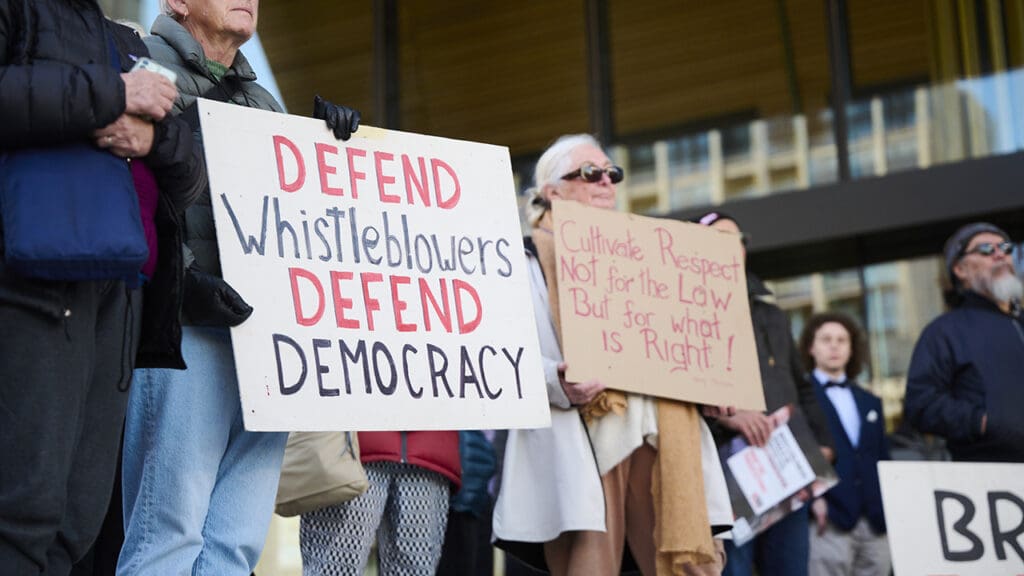Standing with communities to hold Rio Tinto to account
The Human Rights Law Centre is working with communities in Bougainville to seek justice for the environmental devastation left by Rio Tinto’s Panguna mine. Together, we are calling for action so people can live safely on their land again.
The Human Rights Law Centre is working with communities in Bougainville to seek justice for the environmental devastation left by Rio Tinto’s Panguna mine. Together, we are calling for action so people can live safely on their land again.
Panguna was formerly one of the world’s largest copper and gold mines. During its operation, over a billion tonnes of mine waste tailings were released directly into the Jaba and Kawerong rivers. In 1989, an uprising by local people against this environmental destruction and inequities in the distribution of the mine’s profits forced the mine to stop operating and triggered a brutal decade-long civil war.
No clean-up has ever taken place. That’s why we’re working with communities to call on Rio Tinto to take responsibility for its legacy and commit to long-term solutions.
In 2021, in response to a human rights complaint brought by 156 local community members, represented by the Human Rights Law Centre, Rio Tinto agreed to fund an independent human rights and environmental impact assessment of the mine. But Rio Tinto has still not made any commitment to funding solutions beyond the impact assessment.
Meanwhile, local people are suffering from the devastating impacts of the mine. Villages are being flooded with mine waste, contaminating peoples’ water supplies. Mine infrastructure is crumbling, putting lives at risk.
The first phase of that impact assessment, focused on the most serious impacts and risks to communities, will report in the coming months.
In May 2024, shareholders gathered in Brisbane for Rio Tinto’s AGM. Thanks to the communities’ advocacy, they asked serious questions about what Rio Tinto intends to do in response to the impact assessment’s findings.
The mining giant must fund the clean-up and long-term solutions Bougainvilleans are calling for. Communities urgently need access to clean drinking water and stabilisation of the levees to stop the vast mounds of mine waste continuing to erode into the rivers. Children need to be able to walk to school without having to wade through treacherous areas of quicksand created by the mine waste.
The Human Rights Law Centre will continue working with communities to demand Rio Tinto takes responsibility for its legacy.

What issue unites Coalition, Labor, Green, teal and One Nation voters? Whistleblower protections
The Albanese Government’s persecution of whistleblowers Richard Boyle and David McBride is unjust, and the public doesn’t support it. It’s time for much-needed reform.
Read more
We’re fighting Tasmania’s parole board gag on free speech
We have filed legal proceedings on behalf of Tasmanian grandmother, Susan Neill-Fraser. Her case challenges a restrictive parole condition placed on her by the Parole Board of Tasmania which limits her ability to speak to the media.
Read more
Universities must stop restricting protests and surveilling staff and students
The Human Rights Law Centre is urging the University of Melbourne to abandon new policy changes that severely restrict protest rights and allow widespread surveillance of students and staff through the universities’ wifi network.
Read more


